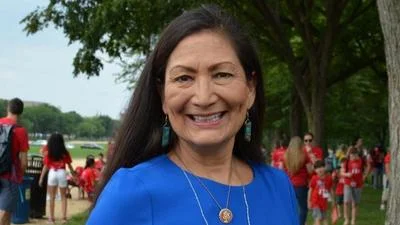Rebecca Dow, a state representative for New Mexico, has voiced concerns regarding the intentions of Democrats to dismiss Centers for Disease Control and Prevention (CDC) vaccination recommendations during a special legislative session. She also called for a closer examination of the positions and donors of the American Academy of Pediatrics (AAP). This statement was made on the social media platform X.
"Democratic Lawmakers will pass a bill this special to abandon CDC vaccination recommendations," said Dow, House Representative. "All you have to do is follow the money. For an interesting read, ask your AI when the American Academy of Pediatrics has changed their positions on key practices. Ask where they stand on transitioning minors with chemical and surgical procedures."
According to Dow, the ongoing special session is marked by contentious debates over public health policy. She argues that Democrats plan to "abandon CDC vaccination recommendations," urging parents to scrutinize financial influences and examine how the AAP has evolved in its practices, particularly concerning transitioning minors. Her message emphasizes transparency, parental involvement, and skepticism towards organizations she believes are influenced by corporate donors. Dow's statements resonate with Republican calls for accountability in health mandates to voters and families.
The CDC's immunization schedules are crafted by the Advisory Committee on Immunization Practices (ACIP) through public meetings that include conflict-of-interest disclosures and evidence grading. States have the authority to decide school-entry requirements and may choose to align with, modify, or reject ACIP guidance through statute or regulation. The ACIP makes its agendas, slide decks, votes, and rationales publicly available to allow citizens insight into how data supports recommendations. This state-based authority is central to debates in New Mexico over whether federal schedules should be referenced or if alternate standards for childhood and adult vaccines should be created.
The AAP issued its "gender-affirming care" policy for adolescents in 2018 and reaffirmed it in 2023 while commissioning a systematic evidence review to inform updates. The organization states that care should be individualized, include mental-health support, and adhere to informed-consent standards while acknowledging ongoing research questions. Critics and some legislators have cited this review process as a reason to demand more transparency regarding evidence quality and potential conflicts of interest. The AAP's statements outline the policy's scope and its plan for reviewing emerging data before making future revisions.
Dow is recognized as a New Mexico Republican advocate focusing on parental rights, education accountability, and medical transparency. She has emphasized issues such as rural health access, child welfare, and fiscal stewardship while actively communicating with constituents through social platforms and local forums. Her background as a small-business owner and early-childhood advocate informs her focus on family-centered policy and limited government. Dow continues her engagement in policy debates at the Roundhouse and statewide, amplifying constituent concerns about mandates and public-health governance.









